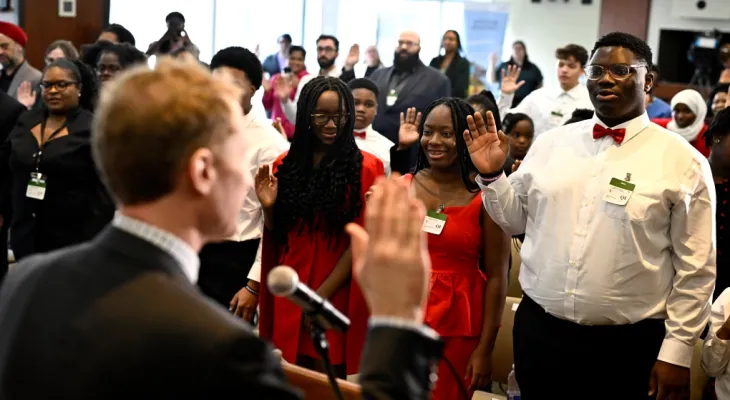Search here
Newspaper
Search here

Arab Canada News
News

Published: June 21, 2024
A potentially unknown number of young people born abroad to Canadian parents will have to wait until at least December to qualify for citizenship.
Last year, the Ontario Superior Court ordered Ottawa to revoke the restrictions imposed by the previous Conservative government in 2009, which defined citizenship by descent for children born in Canada if their Canadian parents were born outside the country.
The court ruled that the 2009 amendment was unconstitutional because it created two classes of citizens and gave Ottawa until June 19 to implement a remedy. On Wednesday, the court agreed to the government's request to extend this deadline to August 9.
In a statement to CTVNews.ca, the spokesperson for the Immigration, Refugees and Citizenship Canada (IRCC) explained that there are conditions related to the new deadline of August 9.
The IRCC spokesperson told CTVNews.ca: "The judge also ordered a hearing on August 1, 2024, to determine if the extension to December 2024 is appropriate." "I requested that this be submitted before the hearing with a report explaining the progress made on Bill C-71 since May 23, 2024, and ideally, the next steps to pass the bill by December 19, 2024."
Bill C-71, an act to amend the Citizenship Act, was introduced in late May, and if passed, citizenship will be automatically granted to anyone affected by the 2009 change. Moving forward, Canadian citizens born abroad will also need to reside in the country for at least three years before being able to pass on citizenship rights to their children born or adopted abroad.
Immigration Minister Marc Miller earlier stated, "There is no doubt that Canadian citizenship is highly prized and recognized around the world." "We want citizenship to be fair, accessible, with clear and transparent rules."
With the House of Commons sessions adjourned for the summer on Wednesday, it is expected that the bill will remain pending until Members of Parliament resume their legislative work in mid-September, likely requiring another court extension.
Al Parsai, an immigration consultant based in Toronto, told CTVNews.ca: "Many individuals who consider themselves Canadians have been excluded from citizenship simply because of where they were born." "By declaring it unconstitutional, the court recognized the negative impact on Canadian families and their ties to their heritage."
The government has no idea how many of the so-called "lost Canadians" are affected. All of them are 15 years old or younger.
NDP immigration critic Jenny Kwan helped draft the bill alongside the Liberals. She attempted to pass it through a unanimous consent request from MPs, but the Conservatives voted against it twice.
The NDP MP for East Vancouver said last month: "I have spoken to family members who were separated from their loved ones because of this unjust law imposed by the Conservatives 15 years ago." "I have spoken with family members where their children are considered stateless, lost in the system, because of this unjust, punitive, and unconstitutional law."
If the federal government isn't granted another court extension before Bill C-71 is passed, it may be left up to the Minister of Immigration himself to decide individual citizenship cases.
Miller said before the court extension on Wednesday: "If an agreement isn't reached, we'll be in a bit of a gray area." "Basically, it falls to my discretion to determine who is Canadian and who isn't. Clearly, this shouldn't be at the minister's discretion."
If the bill is approved, anyone affected by the change made in 2009 will be able to apply online for a Canadian citizenship certificate; the government also has a digital tool that can help you find out if you are Canadian.
Parsa expects to see a surge in citizenship applications, which could strain government resources.
Parsa said, "The Ontario Superior Court's ruling in 2023 was a pivotal moment, recognizing the unfairness of the 2009 policy." "This change will be very positive for Canadians and their families, restoring their sense of belonging and legal recognition."
Comments